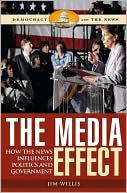Category Books
- Fiction Books & Literature
- Graphic Novels
- Horror
- Mystery & Crime
- Poetry
- Romance Books
- Science Fiction & Fantasy
- Thrillers
- Westerns
- Ages 0-2
- Ages 3-5
- Ages 6-8
- Ages 9-12
- Teens
- Children's Books
- African Americans
- Antiques & Collectibles
- Art, Architecture & Photography
- Bibles & Bible Studies
- Biography
- Business Books
- Christianity
- Computer Books & Technology Books
- Cookbooks, Food & Wine
- Crafts & Hobbies Books
- Education & Teaching
- Engineering
- Entertainment
- Foreign Languages
- Game Books
- Gay & Lesbian
- Health Books, Diet & Fitness Books
- History
- Home & Garden
- Humor Books
- Judaism & Judaica
- Law
- Medical Books
- New Age & Spirituality
- Nonfiction
- Parenting & Family
- Pets
- Philosophy
- Political Books & Current Events Books
- Psychology & Psychotherapy
- Reference
- Religion Books
- Science & Nature
- Self Improvement
- Sex & Relationships
- Social Sciences
- Sports & Adventure
- Study Guides & Test Prep
- Travel
- True Crime
- Weddings
- Women's Studies
Media Effect: How the News Influences Politics and Government » (New Edition)

Authors: Jim Willis, William James Willis
ISBN-13: 9780275994969, ISBN-10: 0275994961
Format: Hardcover
Publisher: ABC-CLIO, Incorporated
Date Published: June 2007
Edition: New Edition
Author Biography: Jim Willis
JIM WILLIS is a former newspaper reporter and editor for the Oklahoman and the Dallas Morning News who has been teaching journalism at the university level since 1980. He holds a Ph.D. in Journalism from the University of Missouri, and he currently chairs the Department of Communication Studies at Azusa Pacific University. He has held endowed chairs at the University of Oklahoma and the University of Memphis, is a former Communication Department chair at Boston College, and has been a professor at Ashland University as well as guest professor at Johannes Gutenberg University in Mainz, Germany, and Justus Liebig University in Giessen, Germany. Since leaving the practice of full-time daily journalism, he has covered numerous stories, including the bombing of the Alfred P. Murrah Federal Building in Oklahoma City. This is his tenth book on journalism and the news media.
Book Synopsis
In a postmodern age where the media's depictions of reality serve as stand-ins for the real thing for so many Americans, how much government policy is being made on the basis of those mediated realities and on the public reaction to them? When those mediated depictions deviate from the truth of the actual situation, how serious a situation is that? Time and again, both anecdotal evidence and scientific research seem to confirm that the news media often influence government action. At the least, they speed up policy making that would otherwise take a slower, more reasoned course.
Sometimes the media serve as the communication link among world leaders who may be ideological enemies. Because of the enduring popularity of television news, government leaders monitor the networks' story selections and track public opinion trends generated by interviews done in these stories. These then become the substance of proposed legislation and/or executive action, as politicians strive to prove themselves able listeners to the heartland of America and also prove themselves worthy of re-election. This book examines many specific events that show how major news operations either painted a truthful or distorted picture of national and international events, and how governmental leaders responded following those representations.
"Willis synthesizes the research literature on the American media, focusing primarily on the question of how media representations influence government decision- making, particularly the decision to go to war. He discusses how the media chooses what to cover and the media's ability or inability to cover stories accurately. He also discusses questions of media literacy, the symbiotic relationship between politicians and the media, and examples of how presidents have sought to manage media coverage throughout American history."
Reference & Research Book News
Table of Contents
Series Foreword Jeffrey Scheuer ix
Preface xi
Media Impact on Government: Views Vary 1
The Media and Political Action 15
The Media and National Development 29
How Events and Issues Become News 43
What the Research Reveals 55
Decoding the News: A Primer in Media Literacy 73
Politicians and Journalists: A Symbiotic Relationship 93
Presidents and the Press 105
Conducting War in a Media Age 117
The Media as the Fourth Estate 137
Notes 147
Selected Bibliography 155
Index 157
Subjects
 Media
Media  Journalism
JournalismEntertainment
 Media
Media  Mass Media & Politics
Mass Media & PoliticsNonfiction
 Social Sciences
Social Sciences  Media & Communications
Media & CommunicationsPolitical Books & Current Events Books
 Civil & Human Rights
Civil & Human Rights  Censorship
CensorshipPolitical Books & Current Events Books
 Civil & Human Rights
Civil & Human Rights  Civil Rights - United States
Civil Rights - United StatesPolitical Books & Current Events Books
 All Politics
All Politics  Civil & Human Rights
Civil & Human RightsPolitical Books & Current Events Books
 All Politics
All Politics  Political Theory & Ideology
Political Theory & IdeologyScience & Nature
 Social Sciences
Social Sciences  Media & Communications
Media & CommunicationsSocial Sciences
 Media & Communications
Media & Communications  Journalism
JournalismSocial Sciences
 Media & Communications
Media & Communications  Mass Media & Politics
Mass Media & PoliticsNonfiction
 Entertainment
Entertainment  Media
MediaNonfiction
 Politics & Current Affairs
Politics & Current Affairs  Civil & Human Rights
Civil & Human RightsNonfiction
 Politics & Current Affairs
Politics & Current Affairs  All Politics
All Politics
